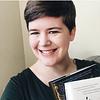Take a photo of a barcode or cover
reflective
medium-paced
this is a tough one for me to rate. I enjoyed learning more about k-pop, especially bands from before I started listening and some of the cultural nuances. It was interesting how she wove music into her personal story, however it got pretty repetitive as it went. some parts felt really bitter, especially since of the music critiques that didn't really further the story. idk. I enjoyed it and yet also didn't.
informative
reflective
informative
reflective
medium-paced
For how popular kpop and jpop are globally, there's a disproportionate dearth of English / English-translated books that cover their cultural effect and parasocial phenomena -- "Y/N" and "Idol, Burning" being two fictional, more philosophical perspectives. So Giaae Kwon's book was an exciting discovery, and hopefully the start of more interest from publishers.
This is a multilayered approach of Kwon's personal life as a Korean American, her experience as a kpop fan, some kpop and Korean history, and the conflicts that arise at their intersection -- misogyny, racism, religion, LGBTQA+ rights, war, body shaming and plastic surgery, depression and more.
I had a lot of trouble with who this book is meant for; a general reader wouldn't come close to understanding the Korean phrases and fandom terminology loosely thrown around without footnotes, while an experienced kpop fan would see this as too surface-level and painfully redundant, covering the same popular groups and tired topics repetitively.
Basically, this needed editing and time. It reads like Kwon's blog posts were roughly copy-pasted together, and frustratingly, there's no proper citations. It's shocking, as the majority of the book covers actual artists and events, and eschews listing legitimate sources.
I still appreciated Kwon's raw approach to finding hope and identity as a fan, and genuinely look forward to more voices like hers.
This is a multilayered approach of Kwon's personal life as a Korean American, her experience as a kpop fan, some kpop and Korean history, and the conflicts that arise at their intersection -- misogyny, racism, religion, LGBTQA+ rights, war, body shaming and plastic surgery, depression and more.
I had a lot of trouble with who this book is meant for; a general reader wouldn't come close to understanding the Korean phrases and fandom terminology loosely thrown around without footnotes, while an experienced kpop fan would see this as too surface-level and painfully redundant, covering the same popular groups and tired topics repetitively.
Basically, this needed editing and time. It reads like Kwon's blog posts were roughly copy-pasted together, and frustratingly, there's no proper citations. It's shocking, as the majority of the book covers actual artists and events, and eschews listing legitimate sources.
I still appreciated Kwon's raw approach to finding hope and identity as a fan, and genuinely look forward to more voices like hers.
Graphic: Body shaming, Emotional abuse, Fatphobia, Misogyny, Racism, Suicidal thoughts, Suicide, Xenophobia, Grief, Stalking, Suicide attempt, Cultural appropriation, War
emotional
inspiring
fast-paced
To give some background about myself, I'm a huge K-Pop fan. My first memory of K-pop was in 2005-2006, when I was in college. My very first song that I listened to was Wonder Girls - Tell Me, and at the time, I didn't enjoy the music video, but later, my friends introduced me to TVXQ's Balloons, which was cute and got stuck with me since. (I later re-listened/re-watched Tell Me, and I was hooked.)
With that said, the memoir was interesting to read from the perspective of knowing K-pop, but seeing how it blends in with the author's life. Looking back, I could say some points of my life can be pinpointed to certain timeframes (pushing the limit of my peers who didn't know K-pop by pointing out that Run Devil Run by Girls' Generation was from a demo track that Ke$ha wrote, my left knee injury that happened around Girl's Day - Expectation, and discovering SF9's DaWon and soloist Wonho during the early days of the pandemic).
The book felt like a warm hug that the author wants to give to all the groups she likes/follows, mostly H.O.T and Suga from BTS. I enjoyed several points that she made about crossing what idols are going and the reality of things. Granted, because of the bias (both only knowing the groups that she liked and being SM-heavy), there were some things she could have added to elaborate on some points. I'm not saying that it's wrong not to include certain things (like how Wonder Girl's SunMi went on hiatus for school, only years later, she revealed it was because of her mental health, or adding a chunk about her thoughts about HyunA, since the Burning Sun scandal was mentioned). However, I can't speak for the author, as she probably didn't follow all the idols or felt like she knew enough to add them into her book, or it wouldn't feel genuine to her, as these were more facts than what she actually experienced during her time.
I've bought the Behind The Scene's book about BTS for some time and never got a chance to read it. Knowing a bit more about BangTan, I'm making it a point to include reading the book sometime this year, as understanding a part of their story from a slight bias perspectives makes me want to understand the struggles/experiences they went through to make them what they are today (and probably before their return as a whole group).
With that said, the memoir was interesting to read from the perspective of knowing K-pop, but seeing how it blends in with the author's life. Looking back, I could say some points of my life can be pinpointed to certain timeframes (pushing the limit of my peers who didn't know K-pop by pointing out that Run Devil Run by Girls' Generation was from a demo track that Ke$ha wrote, my left knee injury that happened around Girl's Day - Expectation, and discovering SF9's DaWon and soloist Wonho during the early days of the pandemic).
The book felt like a warm hug that the author wants to give to all the groups she likes/follows, mostly H.O.T and Suga from BTS. I enjoyed several points that she made about crossing what idols are going and the reality of things. Granted, because of the bias (both only knowing the groups that she liked and being SM-heavy), there were some things she could have added to elaborate on some points. I'm not saying that it's wrong not to include certain things (like how Wonder Girl's SunMi went on hiatus for school, only years later, she revealed it was because of her mental health, or adding a chunk about her thoughts about HyunA, since the Burning Sun scandal was mentioned). However, I can't speak for the author, as she probably didn't follow all the idols or felt like she knew enough to add them into her book, or it wouldn't feel genuine to her, as these were more facts than what she actually experienced during her time.
I've bought the Behind The Scene's book about BTS for some time and never got a chance to read it. Knowing a bit more about BangTan, I'm making it a point to include reading the book sometime this year, as understanding a part of their story from a slight bias perspectives makes me want to understand the struggles/experiences they went through to make them what they are today (and probably before their return as a whole group).
emotional
reflective
medium-paced
- I’ll start this by saying that I know next to nothing about K-pop aside from a few BTS and Blackpink songs. You don’t need to know any of it to follow this book, I promise.
- Kwon uses the K-pop bands she has been a stan for over the decades to unpack parts of her own life and larger cultural forces, from fatphobia to academia.
- I also appreciated that Kwon puts K-pop into the historical context of Korea as a whole, since that’s not something we get taught in school in the U.S.
- Kwon uses the K-pop bands she has been a stan for over the decades to unpack parts of her own life and larger cultural forces, from fatphobia to academia.
- I also appreciated that Kwon puts K-pop into the historical context of Korea as a whole, since that’s not something we get taught in school in the U.S.
Graphic: Body shaming, Bullying, Death, Eating disorder, Emotional abuse, Fatphobia, Homophobia, Mental illness, Misogyny, Racism, Sexism, Suicidal thoughts, Religious bigotry, Colonisation, War, Pandemic/Epidemic
Vulnerable, gripping, and accessible, even to someone with no background re: k pop
My library reading challenge has some obscure categories. This year one of the obscure categories is a book that features K-pop. My entire K-pop knowledge before reading this memoir is that BTS is a K-pop group.
I actually heard this author on Traci Thomas's podcast THE STACKS, and when she said she wrote a memoir about K-pop, I immediately put two and two together and knew how I was going to fulfill the K-pop challenge category.
This memoir is equal parts:
1. K-pop education: history (sounds like they took their guiding principles from Lou Pearlman and how he ran the first boy bands in the United States) and its pros and cons like misogyny
2. Korean culture (beauty standards, academic standards, family)
3. Personal memoir
4. Mental health advocacy
I didn't expect that I'd get so much in one book. My interest waned slightly when the author talked about her personal life because I felt she got so repetitive about certain aspects (like body shaming).
There are a lot of potential triggers in this one (body shaming, suicide).
I actually heard this author on Traci Thomas's podcast THE STACKS, and when she said she wrote a memoir about K-pop, I immediately put two and two together and knew how I was going to fulfill the K-pop challenge category.
This memoir is equal parts:
1. K-pop education: history (sounds like they took their guiding principles from Lou Pearlman and how he ran the first boy bands in the United States) and its pros and cons like misogyny
2. Korean culture (beauty standards, academic standards, family)
3. Personal memoir
4. Mental health advocacy
I didn't expect that I'd get so much in one book. My interest waned slightly when the author talked about her personal life because I felt she got so repetitive about certain aspects (like body shaming).
There are a lot of potential triggers in this one (body shaming, suicide).
medium-paced
This book felt under-researched. The parts about K-pop often felt like an afterthought, rather than a way to amplify and expand on the emotion of the memoir pieces. While I agreed with many of the author's political opinions, she often added them without context or connection to the other themes she was exploring, so it felt flat and undiscerning, rather than educational or insightful.
informative
reflective
medium-paced
informative
reflective
fast-paced







